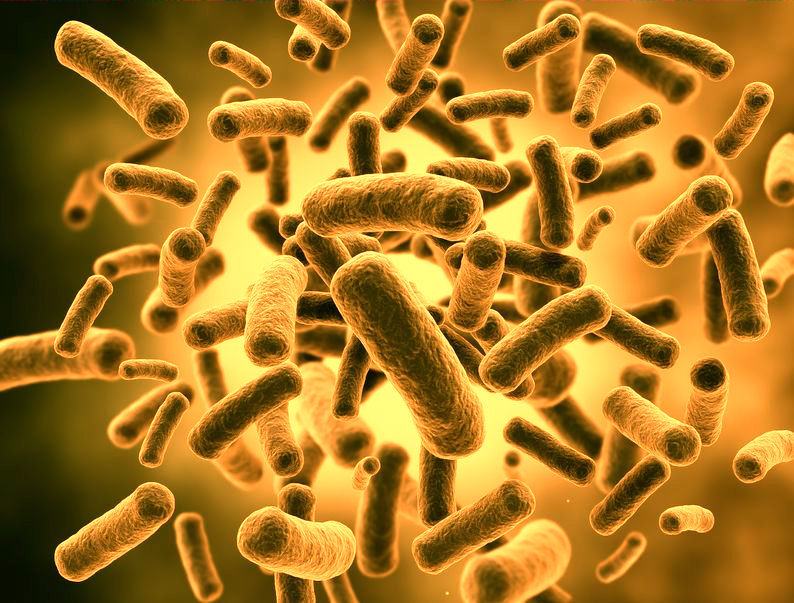Earlier studies showed that breakfast can increase metabolism. It is also known that exercise can raise metabolic rate and take some pounds off. How about actually eating yogurt to increase your metabolism? Does that sounds like a fantasy?! Maybe not.
Probiotics are defined as live bacteria that benefit its host’s health. The term probiotics was introduced in late 19th century with very a similar meaning. Our knowledge of microbes living in the gut goes even farther, back to the late 18th century. Russian scientist, Elie Metchnikoff, observed certain rural populations in Europe, like Bulgaria, that consumed high amounts of fermented milk (high in lactic-acid bacteria) and noticed that they were exceptionally long lived. Therefore, Metchikoff hypothesized that aging processes may result from the activity of microbes that produce toxic substances in the large intestine. These bad bacteria were named Proteolytic bacteria. Proteolytic bacteria such as Clostridia produce toxic substances including phenols, indols and ammonia from the proteins in our gut. This process Metchnikoff called “intestinal auto-intoxication.” Metchnikoff suggested the possibility to modify the gut flora, replacing Proteolytic bacteria with probiotic bacteria, for which he received a Nobel Prize at the end on 19th century.
Over a century later, the study of gut microflora (microbiota) has become one of the hottest areas of research. Scientists suggest that the number of gut bacteria exceeds the number of human cells by a factor of 10, which is about 100 trillion archeal and bacterial cells. There are over 1,000 species of bacterial cells in our body but the main bacteria are Bacteriodetes and Firmicutes. Gut bacteria have co-evolved with the host organism over generations and thus have a strong significant influence on the physiology of the human. Studies have shown that microbiota plays an important role in many disorders such as Inflammatory Bowel Disorders, Diabetes, Obesity, bone health, Atopic Disease, brain development, Autism and others. No wonder microbiota became such a hot area of research!
Previous studies revealed that the ratio of Bacteriodetes and Firmicutes play a huge role in the absorption of dietary fats, and therefore body weight. A high ratio of Firmicutes was found to increase weight where a high ratio of Bacteriodetes was found to decrease body weight. At this point, you probably wonder what it is about these bacteria that can alter our body weight. Scientists discovered that feces from lean mice contained higher energy than feces from obese mice, meaning obese mice’s intestinal microflora (Firmicutes) absorbed energy more efficiently from the same amounts of food than bacteria (Bacteriodetes) from the lean mice. Human studies found to have similar results.
The Journal of Biological Chemistry released a study Mechanism of Action of Probiotic VSL#3. In this study, Peter Walter et al. investigated the effect of probiotic VSL#3 on obese and lean mice. Walter et al. demonstrated that VSL#3 could be used as a treatment and management strategy against diabetes and obesity. High-fat diet (HFD) fed mice that consumed VSL#3 (three-times/daily) showed suppressed body weight gain equivalent to that of mice fed a low fat diet (LFD). VSL#3 showed significant decrease fat size without changing lean mass, brought a decrease in fasting and fed blood glucose levels and enhanced glucose tolerance, Insulin tolerance, and suppressed hyperinsulinemia. VSL#3 also decreased serum triglycerides and free fatty acid levels and reduced fat accumulation in liver, and reduced the inflammatory state (that is often associated with Obesity and Insulin resistance). VSL#3 treatment enhanced glucose homeostasis while reducing food intake and body weight gain. Together, these results suggest that VSL#3 administration protects from HFD induced obesity and glucose intolerance and reverses existing obesity and diabetes in HFD mice.
Hormone Leptin plays a key role in regulating energy intake and expenditure, including appetite, hunger, and metabolism. Walter et al. investigated the effects of VSL#3 treatment in leptin deficient mice (LDM). LDM treated with VSL#3 were found to decrease their body weight gain, fat size and mass, liver triglycerides, and reduced fat accumulation in liver. Also, VSL#3 was found to improve glucose homeostasis and glucose and insulin tests.
Walter et al. demonstrated that VSL#3 promoted butyrate-mediated GLP-1 secretion from intestinal L-cells. The researchers discovered that modified microbiota resulted in changes in the level of gut hormones. Also, hunger inducing hormone, Ghrelin, was decreased, while hunger reducing hormone, GLP-1, was dramatically increased in VSL#3 treated mice compared to HFD fed control mice. Additionally found was a significant reduction of Firmicutes and increase in Bacteriodetes and Bifidobacteria in the GI tract which was suggested to account for those hormonal changes. Scientists went even further and discovered that changes occur even at a genetic level. The mice were found to have increased expression of GLP1 that synthesized several genes which aid in the decrease of food intake, increase of energy expenditure and fat oxidation.
In other words, this study found probiotics to change the ratio of Bacteriodetes to Firmicutes, which altered the production of butyrate and SCFA, that enhanced and reduced several hormones in the process. The result is reduced appetite, body weight loss that is not associated with lean muscle loss but is associated with burning of total body fat. This results in desired changes of metabolic markers. Scientist proposed that VSL #3 could be used as a treatment or prevention for high fat induced Obese and Diabetic patients. While the study used VSL #3
probiotics, other supplemental probiotics and high-quality plain yogurts may be beneficial for increasing metabolism, keeping weight and health under control.








[...] are live bacteria that are beneficial to the human gut. Yogurt is a good example of probiotics. (more about probiotics) Prebiotics are foods that are not being absorbed in the top part of our gut, and after reaching the [...]